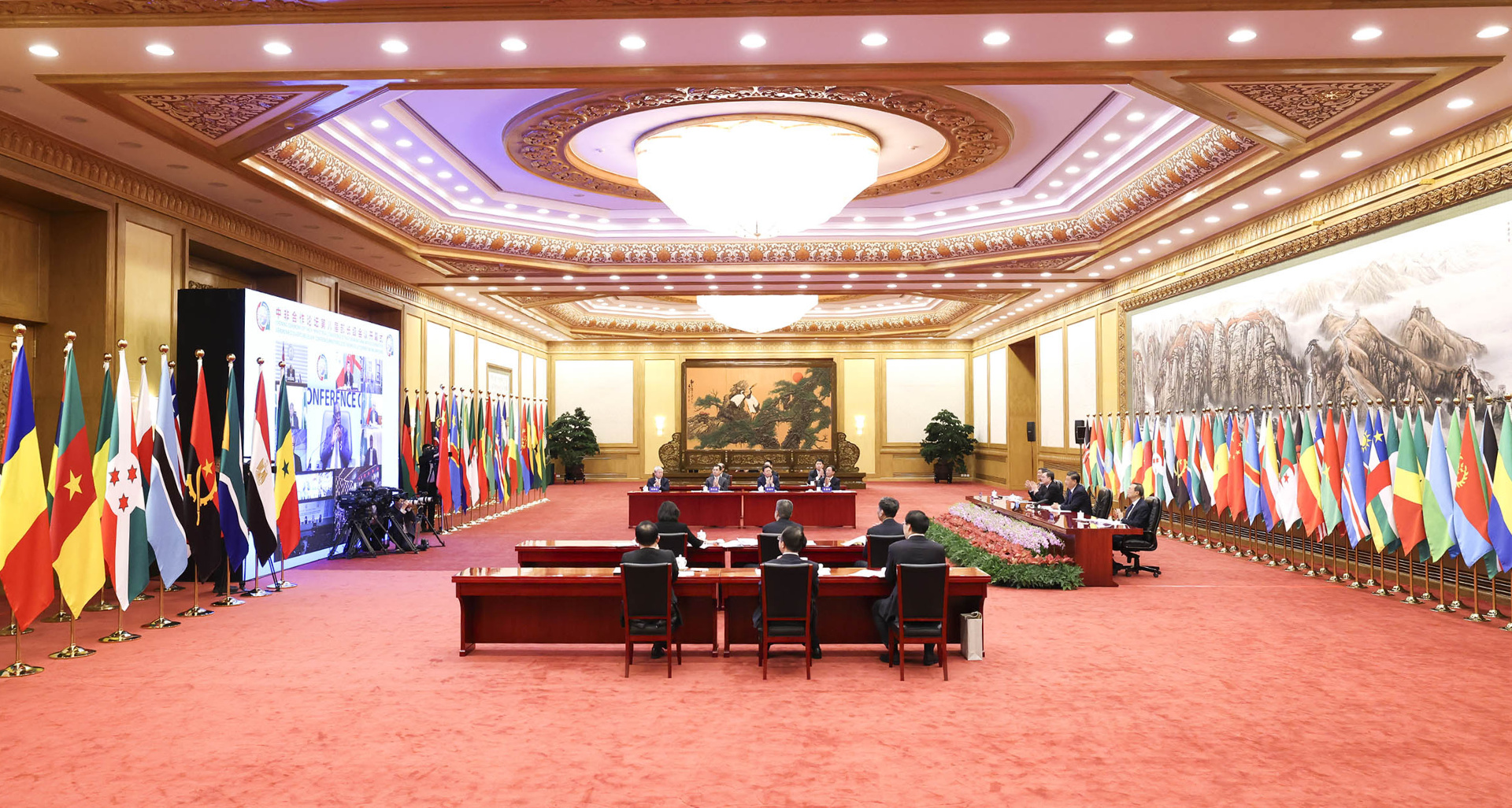China promises 1 billion vaccine doses for Africa
At the Forum on China-Africa Cooperation in Senegal, Chinese leader Xi Jinping unveiled nine initiatives to help Africa combat COVID-19 and spark economic growth. A pledge to donate 600 million vaccine doses and produce an additional 400 million locally caught the most attention.

Chinese leader Xí Jìnpíng 习近平 unveiled a sweeping package of trade, health, and investment programs that all appear intended to address Africa’s immediate demand for combatting the COVID-19 pandemic and sparking economic growth.
Xi laid out his proposals on Monday during a keynote address at the Forum on China-Africa Cooperation conference that’s now underway in Dakar, Senegal.
Of the nine initiatives that Xi unveiled, his pledge on vaccines generated the most buzz. China, he said, would increase the availability of Chinese COVID shots tenfold from the current 107 million doses distributed to a billion. Of that billion, 600 million doses would be donated, with the other 400 million produced locally in various African countries. He did not specify if those locally-manufactured doses would be sold or donated.
Xi also renewed China’s support for the waiver of intellectual property rights of COVID-19 vaccines.
The other major takeaway from the speech was the emphasis on expanding agricultural exports to China and the creation of new “green lanes” that aim to streamline China’s often onerous inspection and quarantine regulations. Xi also said he wants the value of African exports to China to reach $300 billion “in the next three years.”
To help jumpstart the process, Xi said he’ll commit $10 billion of export credits to support African traders seeking to access the China market.
One side note that was also interesting was the reference he made to forming an “expert group on economic cooperation” with the Secretariat of the African Continental Free Trade Area (AfCFTA). This is the most visible endorsement of discussions over the last few months in Chinese research institutions about how to integrate the AfCFTA with the Belt and Road Initiative.
China news, weekly.
Sign up for The China Project’s weekly newsletter, our free roundup of the most important China stories.
Key highlights from Xi Jinping’s FOCAC address:
- INVESTMENT: Xi made a vague promise to “encourage” Chinese businesses to invest $10 billion in Africa over the next three years but did not elaborate on how that would be done and whether it would be state-directed or entirely up to the private sector.
- TRAINING: China has been focusing more attention over the past year on professional training initiatives and vocational education, now, though that will increase markedly with the commitment to bring 10,000 “high-level African professionals” over to China for workshops and seminars. China sees these kinds of training programs as a key part of its effort to set next-generation standards in technology and other sectors.
- YUAN INTERNATIONALIZATION: China will double down on its (still mostly unsuccessful) efforts to expand the use of the yuan to facilitate trade in Africa. Xi committed a portion of a $10 billion credit facility to be used to establish a cross-border RMB center. A similar undertaking in Nigeria has so far not generated the desired outcomes.
The key issue that Xi sidestepped was debt. He made only a passing reference to relieve Africa’s poorest countries of their interest-free government loans which is nothing new and only accounts for a tiny fraction of Beijing’s overall loan portfolio on the continent. He didn’t say anything, though, about the more pressing issue of the billions of dollars of concessional and commercial rate loans that a number of African countries are struggling to repay.
A version of this article was originally published on the China-Africa Project, and it was republished on The China Project with permission.






